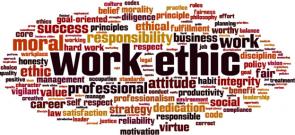
1. What are some key signs that law may be a good fit for an individual?
Some key signs that law may be a good fit for an individual include having strong analytical thinking skills, a passion for justice and ethics, effective communication abilities, resilience in high-stress situations, meticulous attention to detail, and empathy and compassion for clients.2. Why is self-assessment important for aspiring lawyers?
Self-assessment is crucial for aspiring lawyers because it helps individuals understand their strengths, weaknesses, motivations, and preferences. It allows them to make informed decisions about pursuing a legal career and ensures they are well-suited to the demands and expectations of the profession.3. What role do patience and perseverance play in a legal career?
Patience and perseverance are essential in a legal career because it is often a long and challenging journey. Lawyers must endure through demanding educational requirements, protracted legal cases, and setbacks. These qualities enable lawyers to stay committed, navigate obstacles, and ultimately achieve success in the field.4. Why is attention to detail crucial for lawyers?
Attention to detail is crucial for lawyers because even the smallest oversight or missed fact can have significant consequences in legal matters. Lawyers need to meticulously analyze evidence, draft precise legal documents, and ensure accuracy in their work to provide effective representation for their clients.5. How does empathy and compassion benefit lawyers in their practice?
Empathy and compassion benefit lawyers by allowing them to connect with clients on a personal level, understand their needs and emotions, and provide more effective legal counsel. These qualities also contribute to building trust with clients and can enhance a lawyer's ability to navigate emotionally charged situations and negotiate favorable outcomes.- Once you confirm law aligns with your strengths, it’s wise to study the essential skills and qualities required to succeed and survive as an attorney for a clear picture of what thriving in the field entails.
Understanding the Importance of Self-Assessment for Aspiring Lawyers
Before diving into the signs of law career compatibility, it's crucial to understand the importance of self-assessment for aspiring lawyers. This process provides insights into your strengths, weaknesses, motivations, and preferences, ultimately assisting in your law career decision making. In essence, self-assessment is a vital initial step in your legal career path, ensuring that you don't just follow a herd mentality but instead make an informed and personalized decision.Additionally, a well-structured self-assessment can illuminate aspects of the legal profession that may not have been evident initially. For instance, many aspiring lawyers may be drawn to the field because of its portrayal in popular culture. However, the day-to-day realities of the profession may vary significantly from such portrayals. A self-assessment can help bridge this gap, offering a realistic picture of what a career in law truly entails and ensuring that candidates enter the field with clear eyes and realistic expectations. Here’s a video helping aspiring attorneys assess BigLaw suitability focusing on whether your strengths align with the traits elite firms prioritize.
An interesting fact is that a study by the Junior Lawyers Division of The Law Society in the UK showed that over 90% of newly qualified solicitors said they would choose the same career again, signifying the importance of initial career self-assessment. If you’ve confirmed law is your calling, the next step is mastering the journey outlined in Becoming a Top-Rated Attorney: Essential Steps and Skills.
See Related Articles:
- How Important is it to Know Your "Self" Before the Job Market Knows You?
- ''How Am I Doing?''—An Online Career Assessment Tool
The Intellectual Rigor of the Legal Profession: Is It Right for You?
The legal profession is intellectually rigorous. To thrive in this arena, one must possess not only a deep understanding of the law but also the capacity to critically analyze, apply, and communicate this understanding in diverse scenarios. This requires a unique blend of analytical thinking, problem-solving abilities, and the capability to digest and understand vast amounts of complex information rapidly. Therefore, a law career self-assessment should delve into an honest evaluation of one's intellectual capabilities and appetite for continuous learning.Several facets contribute to the intellectual demands of law:
- Complex Legal Analysis: Legal matters aren't always black and white. They often fall within gray areas where different legal principles might apply. Lawyers must be adept at interpreting these principles and understanding how they interplay in various situations.
- Continual Learning: Laws evolve. New regulations come into effect, and court decisions can change the interpretation of existing laws. Lawyers must be lifelong learners, staying abreast of these changes and understanding their implications.
- Multifaceted Cases: Legal cases can encompass various domains, from finance and technology to medicine and real estate. A lawyer might need to become a temporary expert in a particular field to effectively represent a client or understand the intricacies of a case.
- Logical Reasoning: Crafting a compelling argument or identifying flaws in an opponent's assertions requires a keen sense of logic and reasoning. It's like piecing together a puzzle, where each piece is a fact, statute, or precedent.
- Research Proficiency: Not every legal principle or precedent will be at a lawyer's fingertips. Being proficient in legal research is essential to uncover pertinent information to support a case or argument.
The American Bar Association (ABA) reports that law students typically spend about 60 hours per week studying, which highlights the intellectual rigor of the profession. If you find excitement in tackling intellectual challenges, have a penchant for digging deep into issues, and relish the idea of never truly ceasing to be a student, then the intellectual demands of the legal profession may align well with your inclinations.
- After confirming law is the right path, the next step is charting your future—read this article on long-term success in law to understand how to grow into an indispensable professional.
Ethical Standards and Morality: The Cornerstone of Law
Ethical standards and morality are foundational pillars of the legal profession. At its core, law is a tool for ensuring justice, fairness, and societal order. For this tool to remain effective and trustworthy, it is essential for those wielding it—lawyers—to operate with impeccable ethical standards and a strong sense of morality.- Guardians of Justice:
Lawyers often serve as the intermediaries between individuals and the justice system. As such, they bear a tremendous responsibility to ensure that justice is served in its purest form. This not only entails representing their client's interests but also upholding the broader principles of justice, fairness, and equity.
- Confidentiality:
Attorney-client privilege is a cornerstone of legal practice. Lawyers often come into possession of deeply personal, sensitive, or potentially damaging information. The ethical responsibility to protect this information is paramount, both for the protection of the client and for the trustworthiness of the legal system as a whole.
- Conflict of Interest:
Ethical practice demands that lawyers avoid situations where their personal interests may conflict with their professional responsibilities. This includes not representing clients with opposing interests or taking on cases where there may be personal bias.
- Duty to the Court:
While lawyers have a responsibility to their clients, they also have a duty to the court. This means they must operate with honesty, refraining from misleading the court or presenting false evidence. They are obligated to uphold the rule of law and the dignity and integrity of the judicial process.
- Moral Decision Making:
The legal profession is replete with situations that challenge one's moral compass. Sometimes, what's legal isn't always what's moral. Lawyers often grapple with cases that test their personal beliefs and values. A robust moral compass is essential to navigate these challenges and make decisions that align with both the letter and spirit of the law.
- Pro Bono Work:
The ethical obligations of a lawyer extend beyond their immediate professional duties. Recognizing the barriers many face in accessing legal representation, many lawyers engage in pro bono work, offering their expertise for free or at reduced costs to those in need. This commitment reflects the profession's broader dedication to justice and societal good.
According to a survey by the American Bar Association (ABA), around 76% of practicing lawyers believe that maintaining high ethical standards is the most important characteristic of a successful lawyer. This underscores the inextricable link between the legal profession and ethical conduct. For those considering a career in law, a deep introspection into one's own ethical standards and moral values is crucial. If you feel a strong resonance with principles of fairness, justice, and ethical conduct, you are on the right track toward a fulfilling career in the legal realm.
Communication Skills: Are You A Master Orator?
In the legal profession, effective communication is not just an asset; it's an imperative. The success of a lawyer often hinges on their ability to convey ideas, argue cases, and present information in a clear, persuasive, and articulate manner. This not only encompasses verbal communication but also written communication, body language, and active listening. Let's delve deeper into why strong communication skills are paramount and the various facets they encompass:- Those exploring a legal career can benefit from understanding the skills currently in demand, as detailed in In-Demand Skills for Attorneys: What Law Firms Want in Their Hires.
- Persuasion:
Whether presenting a case in court, negotiating a settlement, or advising a client, the ability to persuade is fundamental. It's not just about stating facts but framing them in a way that resonates with the listener, be it a judge, jury, opposing counsel, or client.
- Clarity and Precision:
Legal matters can be intricate and multifaceted. Being able to communicate complex ideas with clarity and precision ensures that your arguments are understood and not misconstrued. Every word chosen, both in speech and writing, should be deliberate and serve a purpose.
- Written Communication:
From drafting contracts to penning legal briefs and correspondences, lawyers spend a significant amount of time writing. Effective written communication ensures that documents are unambiguous, comprehensive, and able to withstand scrutiny.
- Active Listening:
While speaking and writing are vital, so is the ability to listen. Active listening involves fully concentrating, understanding, and responding to what is being said. It's crucial for understanding a client's needs, dissecting opposing arguments, and gleaning nuances in testimonies.
- Adaptability:
A master communicator knows that one size doesn't fit all. The way you communicate with a client may differ from how you present before a court or negotiate with opposing counsel. Adapting your communication style based on the audience is key.
- Non-Verbal Communication:
Body language, eye contact, and tone of voice can convey just as much, if not more, than words alone. In the courtroom, for instance, non-verbal cues can influence a jury's perception or demonstrate confidence and authority.
- Empathy and Emotional Intelligence:
Effective communication is not solely about transmitting information but also understanding and connecting with the emotions of others. Recognizing and validating a client's feelings or reading the emotions of a jury or judge can be invaluable in legal proceedings.
- Feedback Reception:
Effective communication is a two-way street. Being open to feedback, whether from clients, peers, or mentors, and utilizing it constructively, helps refine and enhance communication skills further.
A study from Harvard Law School reported that approximately 80% of a lawyer's time is spent communicating. This statistic underscores the paramount importance of communication skills within the profession. For those aspiring to enter the legal realm, honing these skills is essential. If you find yourself naturally gravitating towards debates, excel in articulating thoughts, or possess a keen ability to read and respond to others, then you're already showcasing signs of a master orator in the making.
See Related Articles:
- The Role of Emotional and Social Intelligence in Your Career
- How Important Are Intelligence, Work Ethic, Perseverance, and Social Intelligence to Succeeding in Large Law Firms?
Resilience and Stress Management: Navigating Through Tough Times
The legal profession is known for its high-intensity, demanding nature. Tight deadlines, unpredictable outcomes, long hours, and the weight of clients' expectations can make it a pressure-cooker environment. However, success in this field often hinges on an individual's resilience and their ability to manage stress effectively. Let's explore why resilience and stress management are paramount for lawyers and how they manifest in the profession:- The Unpredictable Nature of Law:
Legal cases can be fraught with unforeseen challenges—unexpected evidence, sudden twists in testimonies, or unanticipated moves by the opposition. Lawyers must possess the resilience to adapt quickly and recalibrate their strategies without succumbing to panic or disillusionment.
- Client Expectations and Pressure:
Clients often come to lawyers during some of the most challenging times in their lives, be it a criminal defense, a bitter divorce, or a high-stakes business deal. The weight of these expectations can be immense. A resilient lawyer can shoulder these pressures, provide reassurance, and remain steadfast even when the tides are tough.
- Long Hours and Workload:
According to the American Bar Association, many lawyers work over 50 hours a week, with some clocking even longer hours. This workload demands robust mental endurance and an ability to manage stress, preventing burnout.
- Emotional Toll of Cases:
Some cases can be emotionally draining, especially those involving personal tragedies or injustices. Lawyers need to balance their empathy for the client with a degree of emotional detachment to function effectively, making resilience key.
- Conflict and Confrontation:
Litigation, negotiations, and even client interactions can sometimes become confrontational. A lawyer's ability to remain composed, manage their stress response, and not take things personally ensures they can navigate these situations productively.
- Self-care and Boundaries:
Effective stress management in the legal profession often requires setting boundaries. This means knowing when to take breaks, seeking support, and engaging in self-care practices like meditation, exercise, or hobbies. By prioritizing their well-being, lawyers can recharge and approach their tasks with renewed vigor.
- Seeking Support:
Recognizing when one needs help, be it from colleagues, mentors, or professionals, is a sign of strength. Lawyers can benefit from peer discussions, mentorship, or even therapy to navigate particularly challenging phases in their career.
- Growth Mindset:
Resilience is often bolstered by a growth mindset—the belief that challenges are opportunities for growth and that setbacks are a natural part of the learning journey. Lawyers with this mindset are better positioned to navigate failures or disappointments and emerge stronger.
The National Task Force on Lawyer Well-Being reported in a study that lawyers face higher rates of stress, anxiety, and depression compared to other professions. Thus, resilience and effective stress management are not just beneficial—they're essential for longevity and success in the field. For aspiring lawyers, cultivating these skills early can make a significant difference in their legal journey, ensuring they not only survive but thrive in the demanding world of law.
See Related Articles:
- Stressed Out as an Attorney? How to Deal With the Stress of Being a Lawyer
- Top 14 Ways Attorneys Can Avoid Burnout from the Stress of Practicing Law
- Seven Reasons Why Practicing Law Might Be More Stressful Than Spending 18 Months in a POW Camp
Attention to Detail: The Devil is in the Details
In the legal realm, even the minutest of details can be the difference between victory and defeat, exoneration and conviction, or the successful execution of a contract and a litigious dispute. Lawyers are expected to dissect vast volumes of information, ensuring that no stone remains unturned and no detail overlooked. Let's explore the importance of meticulous attention to detail in the legal profession and the various arenas it plays a pivotal role in:- Contract Drafting:
Contracts are the bedrock of many legal transactions. A missed clause, ambiguous language, or an overlooked stipulation can lead to disputes, financial losses, and legal liabilities. Lawyers must scrutinize every word, ensuring that the contracts they draft or review are watertight.
- Evidence Examination:
In litigation, evidence is paramount. Overlooking a piece of evidence or failing to consider its implications can have profound effects on a case's outcome. Meticulous attention ensures that all evidence is considered, analyzed, and utilized optimally.
- Legal Research:
Law is vast and ever-evolving. When researching precedents, statutes, or regulations, an overlooked detail might mean missing a crucial legal argument or misinterpreting the law, leading to potential setbacks in court or advisory roles.
- Client Interaction:
Clients relay their concerns, facts, and goals during consultations. Paying attention to every nuance of their narrative ensures that lawyers understand the depth of the situation and can represent their clients' interests effectively.
- Document Review:
Whether it's during discovery, due diligence, or transactional processes, lawyers often review vast amounts of documentation. Here, even a single overlooked detail can have cascading effects on the legal process or outcome.
- Legal Writing:
From memos to briefs, legal writing requires precision. A misquoted law, an error in referencing, or a typo can compromise the credibility of a document and, in some cases, adversely affect a legal argument or position.
- Regulatory Compliance:
In areas like corporate law, environmental law, or intellectual property, compliance with intricate regulations is essential. Missing a detail can lead to breaches, resulting in penalties, reputational damage, or legal actions.
- Negotiations:
Whether settling a dispute or closing a deal, negotiations demand a keen awareness of details. Overlooking a party's stance, missing non-verbal cues, or failing to note stipulations can influence the negotiation's trajectory.
A survey from Robert Half Legal highlighted that attention to detail was among the top skills hiring managers look for when recruiting for legal positions. This emphasizes its value in the profession. For aspiring lawyers, refining this skill can be immensely beneficial. Engaging in tasks that demand precision, regularly reviewing one's work, and adopting a methodical approach can bolster attention to detail. After all, in the vast tapestry of law, it's often the finest threads that hold the most significance.
See Related Articles:
- The Importance of Being Able to Convey Your Value
- What Is a Contract Lawyer and Why Do Law Firms Use Them?
- Getting Your First Legal Job: What You Need to Know
Patience and Perseverance: The Long Haul
The trajectory of a legal career, much like the process of litigation or negotiation, is seldom swift. It's a marathon, not a sprint, characterized by long hours, waiting periods, setbacks, and intricate challenges. Success in the legal realm hinges not just on knowledge and skill but also on a lawyer's patience and unyielding perseverance. Let's delve into the importance of these attributes in the various facets of the legal profession:- Legal Education and Training:
The journey to becoming a lawyer is a long and demanding one. From rigorous academic curriculum to demanding internships and the formidable bar exam, budding lawyers require immense patience and determination to navigate these milestones successfully.
- Complex Litigation:
Legal battles, especially those involving intricate issues, can stretch for months or even years. It demands a lawyer's patience to see a case through its many phases, from investigation to final judgment, while maintaining unwavering commitment.
- Client Relations:
Clients, especially those unfamiliar with legal processes, can be anxious, inquisitive, or even skeptical. A lawyer's patience is essential in managing client expectations, addressing their concerns, and guiding them with empathy and understanding.
- Research and Analysis:
Unearthing that pivotal precedent or crucial piece of evidence often requires combing through volumes of information. It's perseverance that propels lawyers through hours of research, ensuring they're well-armed with every possible legal tool.
- Negotiations and Mediations:
Finding common ground in disputes or negotiations requires time, patience, and a commitment to the end goal. Lawyers often have to revisit negotiation tables multiple times, armed with new strategies, to achieve favorable outcomes for their clients.
- Navigating Setbacks:
Even the most skilled lawyers face setbacks—unfavorable judgments, lost cases, or unexpected legal challenges. What distinguishes successful lawyers is their perseverance, the ability to pick themselves up, learn, adapt, and move forward with renewed vigor.
- Keeping Abreast with Evolving Laws:
Laws and regulations are in constant flux. Lawyers need to exhibit patience and diligence to stay updated, often revisiting and relearning areas they thought they had mastered.
- Building Reputation and Practice:
Especially for those in private practice or starting their own firms, success doesn't come overnight. Building a reputation, attracting clients, and establishing oneself in the legal community requires persistent effort, networking, and time.
The legendary Abraham Lincoln once said, "Always bear in mind that your resolution to succeed is more important than any other." This sentiment resonates profoundly in the legal world. For aspiring lawyers, it's essential to recognize that while the path might be fraught with challenges, it's patience and perseverance that will see them through to success. Cultivating these traits, not just as professional assets but as personal virtues, can greatly influence the trajectory of one's legal career, ensuring that they not only endure but truly excel in the long haul.
Empathy and Compassion: More Than Just Legal Advice
For many clients, legal battles or consultations aren't merely procedural or transactional experiences; they're deeply personal journeys filled with anxieties, hopes, and vulnerabilities. While technical expertise is a lawyer's primary tool, it's their empathy and compassion that often make the most profound impact. Beyond drafting contracts or formulating legal arguments, lawyers play a crucial role as confidants and support pillars. Clients don't just seek legal advice; they seek understanding, validation, and a sense that their concerns truly matter. It's here that empathy and compassion become indispensable.In a study by the American Bar Association, clients consistently ranked "empathetic communication" among the top qualities they valued in their legal representation. When lawyers approach their clients with genuine compassion, they can foster deeper trust, making clients more receptive to advice and collaborative in their approach. Moreover, it allows attorneys to better gauge the emotional intricacies of a case, tailoring their approach to resonate with juries, judges, or opposing parties. In essence, while laws might be black and white, the human experiences intertwined with them are filled with shades of gray. For a lawyer, navigating these shades with empathy and compassion ensures a more holistic, client-centered, and effective legal practice. If you’re motivated by advocacy and client support, Social Security Law could align perfectly with your values and skills.
- For a focused approach to aligning your personal goals with law firm environments, see Finding Your Firm Fit: A Guide to Choosing the Right Law Firm for Your Career.
See Related Articles:
- Important Questions Attorneys Need to Ask Themselves Before Searching for a New Law Firm Position
- Two Essential Books for Your Career Library
- Book Review: What Can You Do With a Law Degree? A Lawyer's Guide to Career Alternatives Inside, Outside and Around the Law.



